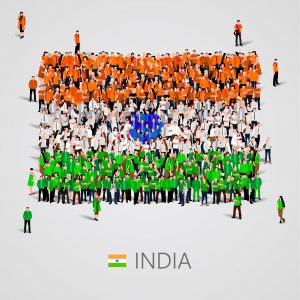With a population of more than 1.3 billion people, India is one of the fastest growing economies in the world. As their global economy continues to expand, and as clinical trials are continuing to be conducted overseas, India remains unique in both the opportunities as well as the challenges it presents for life science companies. As a country with 22 constitutionally recognized languages, with Hindi and English recognized as its official languages and multiple different scripts also acknowledged, in total India is home to over 120 different languages. The diversity of India as well as the resurgence of clinical trials in the region requires in-depth understanding and knowledge of not only the language and culture, but also of the regulatory rules in place.
The regulatory landscape in India has changed drastically over the past decade. In 2013, the life science industry saw newly imposed stricter regulations for clinical trials in the region. Unfortunately, many companies began to pull back amidst the uncertainty. Following this rapid decline in trials after the imposed regulations, governing forces came together to clarify and address concerns. Over the course of the next few years, additional rules were released to encourage life science companies to return to India’s market once again for drug development. One of the most recent rules was released in 2019, aimed at increasing the number of clinical trials conducted in India as well as improving patient safety.
With new regulations in place, clinical trials have begun to increase in India. With the highest number of FDA-approved manufacturing plants outside of the US, and as the third largest producer of drugs by volume, India is well-positioned for global life science companies to enter the market. The region also has many technically skilled professionals that are well-equipped to handle and follow clinical trial protocols. This, combined with the number of updated and modern healthcare facilities, makes India a cost-effective option for conducting clinical trials.
In addition to the lower costs of conducting clinical trials for sponsors from the US, Canada, Germany, and other leaders in clinical research and development, India’s native population gives insight into the drug efficacy on an extremely diverse population pool. Projected to become even more populous than China by 2050, India’s patient recruitment and retainment processes are far easier and faster. With this diversity, however, the need for highly accurate translations of medical documents like patient informed consent forms are crucial in meeting regulatory standards as well as ensuring patient safety.
While Hindi may have the most speakers in India, it only makes up approximately 40% of the population. On top of the approximate 120 languages recognized by the Indian government, there is a wide variety of regional dialects. Since there are so many different dialects, it is very common for individuals to speak more than one language. However, it can be a challenge to locate professional translators that have a true fluency in each different language, a crucial skill when conducting diverse clinical trials, as any potential mistakes could mean risking regulatory compliance, or worse, patient safety. For life science companies interested in expanding into India’s market, the importance of working with experienced language service providers (LSPs) is crucial not only in ensuring that the linguists hired are professional, native translators, but also to ensure that the translated materials and protocols follow India’s changing regulatory rules.
With so many languages and dialects found in the region, a large number of materials need to be translated into various languages for not only trial participants but those who conduct, review, and approve the multiple stages. To add further complexity, the varying literacy rates found within the country creates its own set of unique challenges in producing appropriate and effective documents and literature. While India is set up to produce highly effective clinical trials, between their educated personnel, state-of-the-art facilities, and diverse patient access, high-quality, accurate translation by experienced professionals is essential for a truly successful trial that meets regulatory compliance standards and ensures patient safety. LSPs, like CSOFT, work with life science companies to guarantee that they are successful when entering India’s clinical trial landscape.
About CSOFT Health Sciences
CSOFT Health Sciences provides end-to-end medical translations for all phases of the product lifecycle, from pre-clinical to post-launch. We also specialize in market access consulting, medical writing, and CTD/eCTD submissions with the FDA, EMA, and NMPA. Our operations are compliant with ISO 17100 and certified in ISO 9001:2015 and ISO 13485:2016, ensuring our customized solutions meet the rigorous regulatory requirements of global submissions.
About CSOFT
CSOFT International is a leading provider of cross-border communications for enterprises seeking growth in global markets. Our expertise in localization, documentation, and branding encompasses a full range of end-to-end content and consulting services that we deliver in over 250 languages. With a focus in health sciences and smart technology, we work closely with our clients to deliver precision solutions to the challenges of engaging markets, consumers, and regulatory environments worldwide.

